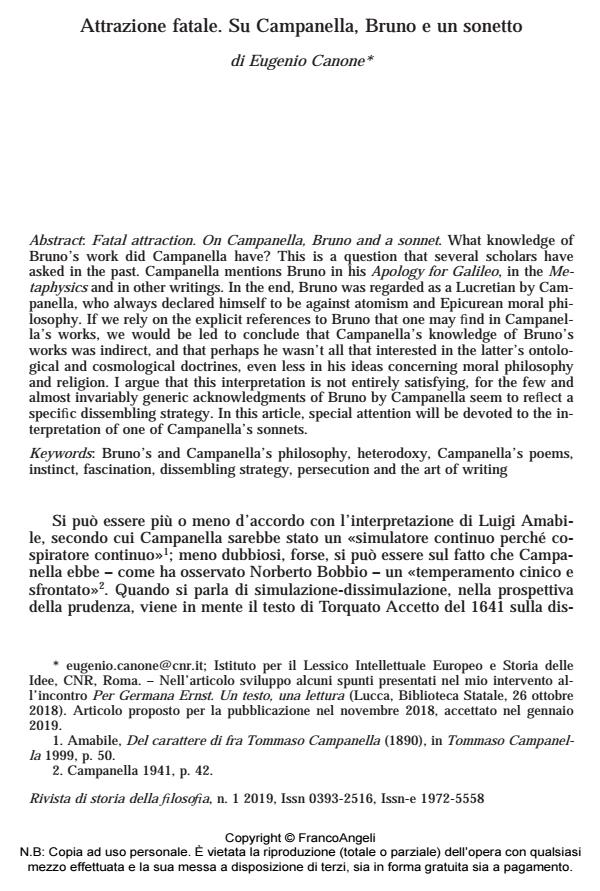Fatal attraction. On Campanella, Bruno and a sonnet
Journal title RIVISTA DI STORIA DELLA FILOSOFIA
Author/s Eugenio Canone
Publishing Year 2019 Issue 2019/1
Language Italian Pages 17 P. 135-151 File size 83 KB
DOI 10.3280/SF2019-001008
DOI is like a bar code for intellectual property: to have more infomation
click here
Below, you can see the article first page
If you want to buy this article in PDF format, you can do it, following the instructions to buy download credits

FrancoAngeli is member of Publishers International Linking Association, Inc (PILA), a not-for-profit association which run the CrossRef service enabling links to and from online scholarly content.
What knowledge of Bruno’s work did Campanella have? This is a question that several scholars have asked in the past. Campanella mentions Bruno in his Apology for Galileo, in the Metaphysics and in other writings. In the end, Bruno was regarded as a Lucretian by Campanella, who always declared himself to be against atomism and Epicurean moral philosophy. If we rely on the explicit references to Bruno that one may find in Campanella’s works, we would be led to conclude that Campanella’s knowledge of Bruno’s works was indirect, and that perhaps he wasn’t all that interested in the latter’s ontological and cosmological doctrines, even less in his ideas concerning moral philosophy and religion. I argue that this interpretation is not entirely satisfying, for the few and almost invariably generic acknowledgments of Bruno by Campanella seem to reflect a specific dissembling strategy. In this article, special attention will be devoted to the interpretation of one of Campanella’s sonnets.
Keywords: Bruno’s and Campanella’s philosophy, heterodoxy, Campanella’s poems, instinct, fascination, dissembling strategy, persecution and the art of writing
Eugenio Canone, Attrazione fatale. Su Campanella, Bruno e un sonetto in "RIVISTA DI STORIA DELLA FILOSOFIA" 1/2019, pp 135-151, DOI: 10.3280/SF2019-001008